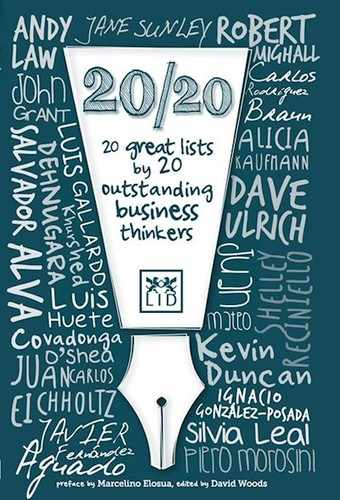9.
WHY NOT?
I hear you say “Why?” Always “Why?” You see things; and you say “Why?”But I dream things that never were; and I say “Why not?”
Gordon D’Silva OBE founded the Hoxton Apprentice in 2003, a restaurant that trained hundreds of unemployed apprentices as chefs, waiters and bar staff. It was to be the model for UK celebrity chef Jamie Oliver’s Fifteen restaurant. Gordon also launched “Training for Life,” a social enterprise that raised several million pounds through social investments, fundraising and events. Its projects have returned over 17,000 people to work and full-time education.
Early in his career, while he was working for Dr Barnardo’s children’s charity, Gordon had to put a very vulnerable young person in accommodation in Earls Court, which at the time was synonymous with the sex trade. He says: “I remember I was so upset. What we needed was an aftercare centre for those leaving care, but we had no money. This was Thatcher’s England and budgets were slashed. Nothing existed in this space. I said to myself ‘Fuck it, I will raise the money’.” Together with agencies and housing associations Gordon acquired an old Victorian building and refurbished it. This became the first aftercare centre in the UK; a safe intermediary space. It had studio rooms for 10 young people and over the years it has provided a transition space for hundreds of young people.
By this stage Gordon had lost faith in the third sector, which he found unbusinesslike, relying on donations and paying workers too little for playing such an important role in society. He decided to get into property development. In his words he became “the personification of Thatcherism, with a Penthouse apartment in South Kensington and driving a Porsche.” He played the stock market and lost heavily. By this stage interest rates had reached 18% so Gordon spiralled into debt. His lifestyle had become unsustainable and in 1992 he became insolvent. His mother had also recently died and this had a big impact on him. “I felt in the past six years I had lost myself and money and status had become all-important. I needed to re-orient myself. I went into a time of deep self-reflection and put a back pack on and travelled for six months. Whereas life had been black and white, I needed to discover grey again, the contradictions that make me who I am.”
When he returned home, he started with a blank sheet of paper. At the time Michael Jackson had launched his “Heal the World” foundation and was looking for a CEO. Gordon applied and was rejected, but as he very rarely takes “no” for an answer he decided to call again, pretending that he had just seen the post advertised. He asked if he could still apply after the closing date and they said yes. From 250 applications he was short-listed to the top three. Yet just before he was about to be interviewed, he was told that the head-hunter had recognized that he had already been rejected earlier and that no interview would take place. “I felt utterly dejected. I remember walking behind Cleveland Square near John Lewis in Central London. My pace became quicker, then I stopped. It felt time stood still and I said to myself ‘Fuck it, I’ll form my own charity’.”

Gordon set about creating a business model that had social impact and was profitable and sustainable. This was long before the term “social enterprise” was in common use. In 1995 he founded “Training for Life," which took disused spaces and turned them into places of education and training for disadvantaged young people.
After the closure of “Training for Life,” he took another period of time out, this time in Italy, where he bought a disused convent and turned it into a space of renewal, rest and personal wellbeing, called “Legacy Casa Residencia.” It is there that Gordon brings groups of executives together to discuss issues that can address society’s needs.
“I truly believe that to tackle the wider challenges we face in business, academia and government we have to work together and to recognize that social impact makes good business sense. Sometimes I ask myself ‘Why am I doing this?’ My answer is always ‘Why not? It is needed and no one else is doing this right now’.”
Rather than go into resignation and defeat, Gordon saw the possibility that arose out of rejection and failure. His “why not?” attitude gave him the courage to act in spite of not knowing what lay ahead.
